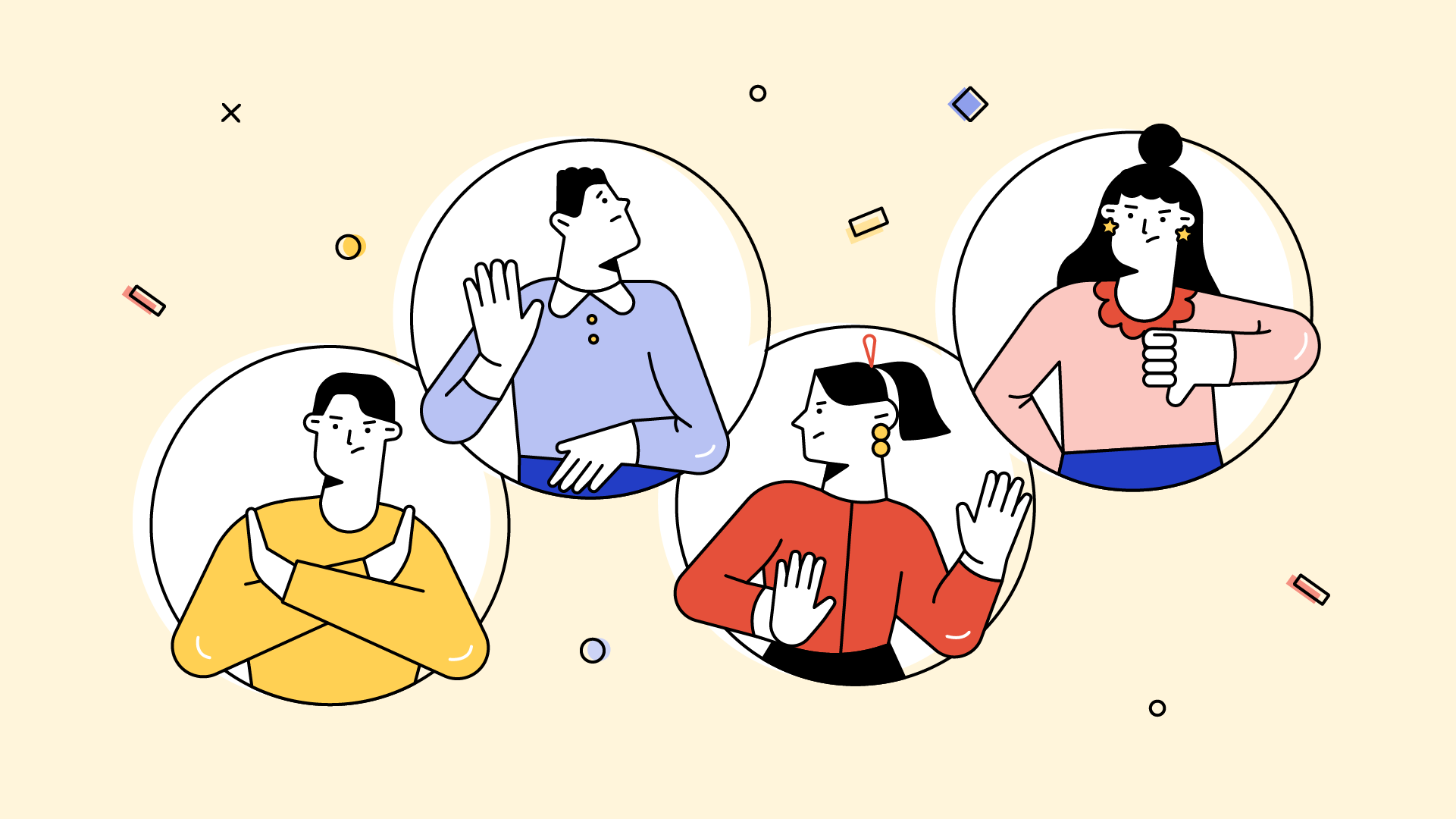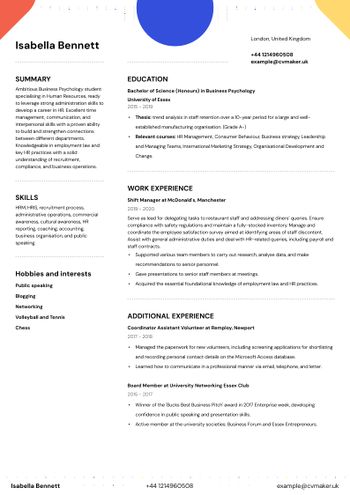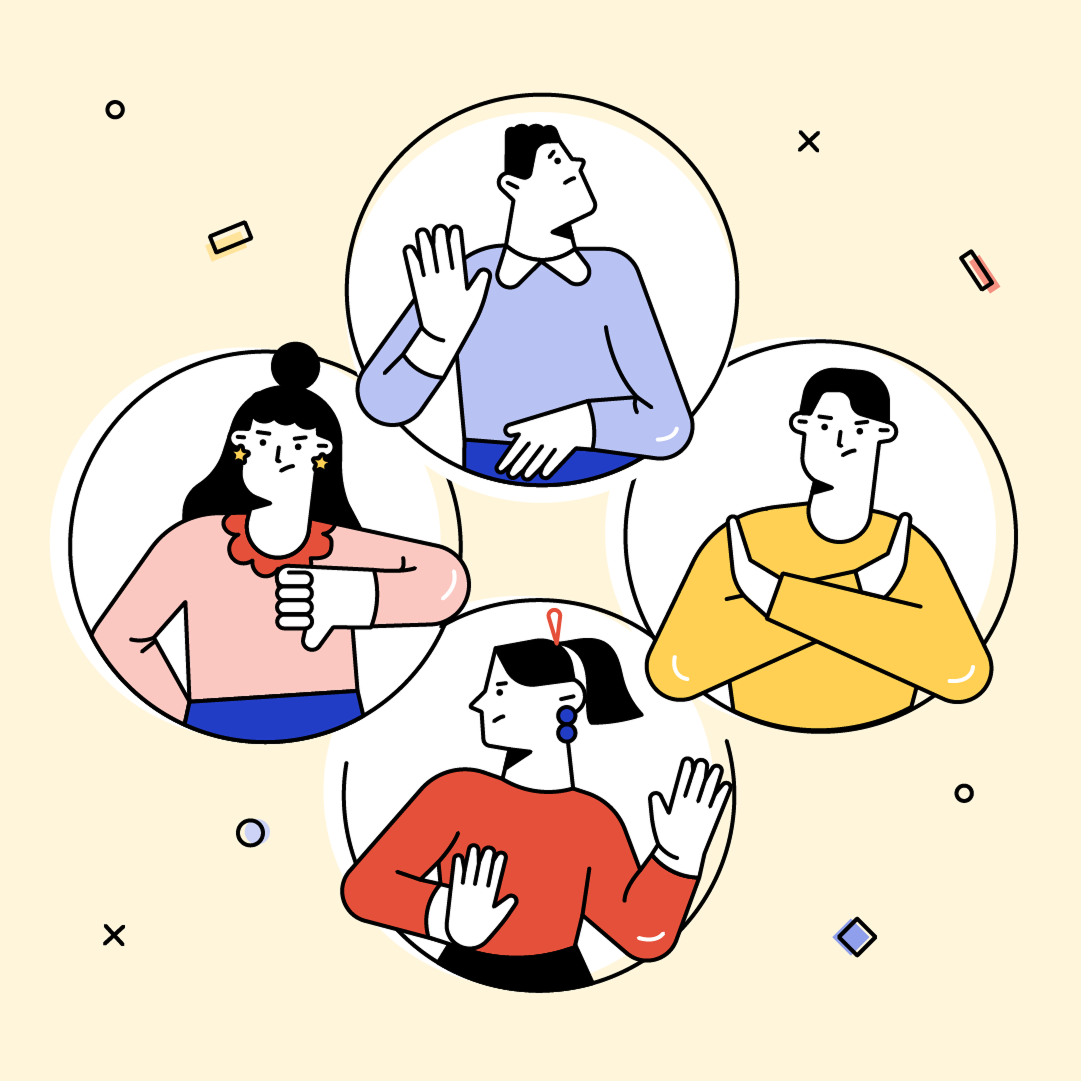A job interview is often a nerve-wracking process, even when you’re the best candidate for the job! It’s not just about what you say, but also about how you say it, how you carry yourself, and how you connect with the interviewer. In short, body language during an interview can significantly impact your chances of getting the job.
From the moment you arrive, and sometimes even before that, your nonverbal cues start speaking louder than your words. Understanding the power of body language in interviews is essential if you want to make a good impression and, together with your professional CV and matching cover letter, improve your odds of interview success.
In this guide, we cover:
The importance of body language in an interview
Common mistakes to avoid before, during and after the interview
Positive and negative body language
Best body language practices for a successful process.

Want to get more interviews? Your ideal job is just a well-written CV away!
Why is body language important in an interview?
We know that our bodies constantly transmit information, but the big question is, who’s receiving it? Body language is a powerful form of communication, and during interviews, it can reveal confidence, honesty, nervousness, or even disinterest. And all of this without even saying a word!
Interviewers evaluate more than just your good CV and articulate answers. They assess your posture, facial expressions, hand gestures, tone of voice, and even how you walk into the room.
Pro tip
At the same time, paying attention to the body language of the interviewer can provide valuable insight into their level of interest and engagement, allowing you to adapt your approach as needed.
6 body language tips to master before entering the interview room
We often overlook that body language begins to communicate long before the formal interview even starts. From the way you choose your job interview outfit to how you interact with people in the building, everything contributes to the first impression.

Follow these easy steps before entering the interview room:
Make sure your clothes are clean, polished and look professional.
If you need to park your vehicle, be mindful to avoid taking someone else’s spot or parking in an unsuitable location.
Always greet security staff, receptionists, and everyone you encounter with courtesy and respect. This simple act shows a lot about your personality and positive attitude.
Sit calmly and confidently while waiting.
If you bring copies of your CV, hold them with care.
Don’t adopt a defensive or withdrawn “turtleneck” posture. Instead, present your documents confidently, as if saying, “This is who I am.”
Pro tip
Your social media presence plays a crucial role in shaping how others perceive you, including potential employers. Be mindful of what you share publicly and avoid posting anything you wouldn’t want them to see. Additionally, take care to present yourself professionally in virtual spaces.
Body language tips for starting your interview strong
It’s time to walk into the interview room. You’re probably a bit more nervous than before, but it’s totally normal. This shouldn't discourage you from making a great first impression. Your first few seconds help establish confidence and openness, so make sure to take these tips into account to start strong:
Make eye contact with each person present. But don’t stare.
Offer a firm handshake. Not too strong or too soft, with fingers below their wrist. Don’t play the domination game of whose handshake is stronger.
Focus on the people, not the chair you intend to sit on.
Walk confidently, maintain an upright posture, and smile while staying natural.
Introduce yourself using a strong, steady voice.
Keep your hands visible, and avoid putting them in your pockets or under the table.
Body language mistakes to avoid during an interview
Positive body language signals build trust and connection, while negative signals can create discomfort and doubt. While some differences may appear subtle, recognising them is essential.
Do
Maintain eye contact to show confidence and engagement.
Don't
Look around the room or stare at the floor or ceiling.
Do
Slightly tilt your head when listening and nod to show interest.
Don't
Interrupt or talk over the interviewer.
Do
Smile where appropriate and keep your expressions natural.
Don't
Appear tense or robotic.
Do
Use controlled hand gestures to support your points.
Don't
Slouch, cross your arms or fidget.
Do
Sit upright but relaxed.
Don't
Play with objects or tap your feet.
Do
Subtly mirror the body language of the interviewer to build rapport.
Don't
Be caught off guard with a question. Hesitation is a killer.
Do
Take deep breaths, speak clearly and project your voice.
Don't
Display signs of impatience or disinterest.
Best body language tips to end an interview with success
Just as a good start matters, so does a strong finish. This is your last chance to make a great impression before following up after the interview. Now, it’s important to show the interviewers respect, say goodbye and shake hands again.

Thank the interviewers warmly and offer a firm handshake.
Maintain enthusiasm and express your appreciation for the opportunity.
Exit calmly, with good posture and a composed attitude.
Pro tip
The interview process isn’t over until you’re home. Your body language should remain confident and professional throughout.
How to adjust your body language for virtual interviews
In online interviews, the same principles apply, but the dynamics change slightly because the digital format demands even more awareness of your nonverbal cues. So, be extra alert! Whether you’re a student, an introvert preparing for an interview or a seasoned professional who wants to promote yourself in the best way, keep in mind the following:
With remote interviews, you have an advantage: you are in control of your virtual space. It should be tidy, quiet and professional.
Align your attire with the company culture, opting for a slightly more formal look rather than risking being too casual. It's always better to be a bit overdressed than underdressed.
Your gestures are limited to the camera frame, so your facial expressions carry more weight. So, eye contact is even more important virtually.
When speaking, look directly into the camera. When listening, look at the screen.
Don’t fixate on your own image. It’s a very common distraction.
Sit upright and nod to show you’re engaged in the conversation.
Pro tip
Whether the interview is face-to-face or virtual, your nonverbal communication speaks volumes. Remember, interview body language isn’t about acting or pretending. It’s about expressing confidence, professionalism and authenticity.
The Best CV Builder
Effortlessly create a professional CV
Easy to use on any device
Integrated spelling and grammar check
Customisable job-specific CV examples

Body language interview essentials
Practise in front of a mirror or record yourself to identify habits.
Rehearse with mock interviews to refine both verbal and nonverbal communication.
Prepare answers in advance to avoid hesitation.
Maintain your composure, even when faced with unexpected questions.
Align your facial expressions with your words for authenticity.
Pro tip
Confidence, preparation, and self-awareness are key to presenting your best self. The more you practise, the more confident you will be.
Next steps?
Mastering your body language is just one part of interview success. And if you're not getting interviews, it might be time to improve your CV. Check out our CV templates and cover letter templates to refine your documents, or our CV Writing Service to strengthen your application with the right structure, CV keywords and industry-specific language. Already making it to interviews but not securing offers? Start by perfecting your responses to common interview questions with example answers, or how you present yourself in the 'tell me about yourself' question.
FAQs
What are the 5 C's of body language?
The 5 C’s of body language refer to key principles that help you communicate effectively through nonverbal cues:
Confidence: Maintain strong posture, eye contact, and a calm tone of voice.
Control: Avoid fidgeting or distracting movements.
Congruence: Align your body language with your words to build trust.
Connection: Engage with your interviewer through active listening and open gestures.
Clarity: Ensure your body language is clear and unambiguous to support your message.
Discover more in our article on the STAR interview technique, designed to help you create thoughtful responses and communicate with confidence during your next interview.
What are the 7 types of body language?
Body language can be grouped into seven major types of nonverbal communication:
Facial expressions: Smiling, frowning, raised eyebrows.
Gestures: Movements of the hands, arms or head.
Posture: How you sit or stand, and how open or closed your stance is.
Eye contact: Where and how you look at someone.
Proximity: The physical space between you and others.
Touch: Handshakes or appropriate contact.
Appearance: Clothing, grooming and overall presentation.
During a telephone interview, your tone of voice plays a crucial role. How you sound and the way you express yourself can leave a lasting impression. While the interviewer can't see you, the confidence in your voice can significantly influence the outcome of the interview. So don't overlook these details.
What are three negative body language to be avoided in an interview?
Identifying positive and negative body language signals can be challenging to narrow down to just a few. However, some of the most commonly observed ones include the following:
Crossed arms: Along with looking too serious, this can appear defensive or resistant.
Avoiding eye contact: It might demonstrate an impression of insecurity.
Fidgeting: Tapping, shifting or playing with objects can signal nervousness or distraction.
How to read someone's mind by body language?
While you can’t literally read minds, body language offers powerful clues about what someone might be thinking or feeling. For example:
Crossed arms and legs often suggest resistance or discomfort.
Real smiles crinkle around the eyes, while fake ones don’t.
If someone mirrors your body language, it’s usually a sign of connection or agreement.
Posture reveals confidence, and a slouched or tense posture may signal insecurity.
Raised eyebrows can show surprise or discomfort.
Exaggerated nodding may reflect anxiety or a need for approval.
Understanding these subtle nonverbal cues can help you respond more effectively in both interviews and other face-to-face interactions. And if you want to leave a lasting impression and boost your chances of landing the job, be sure to ask insightful questions during your interview.
)



)
